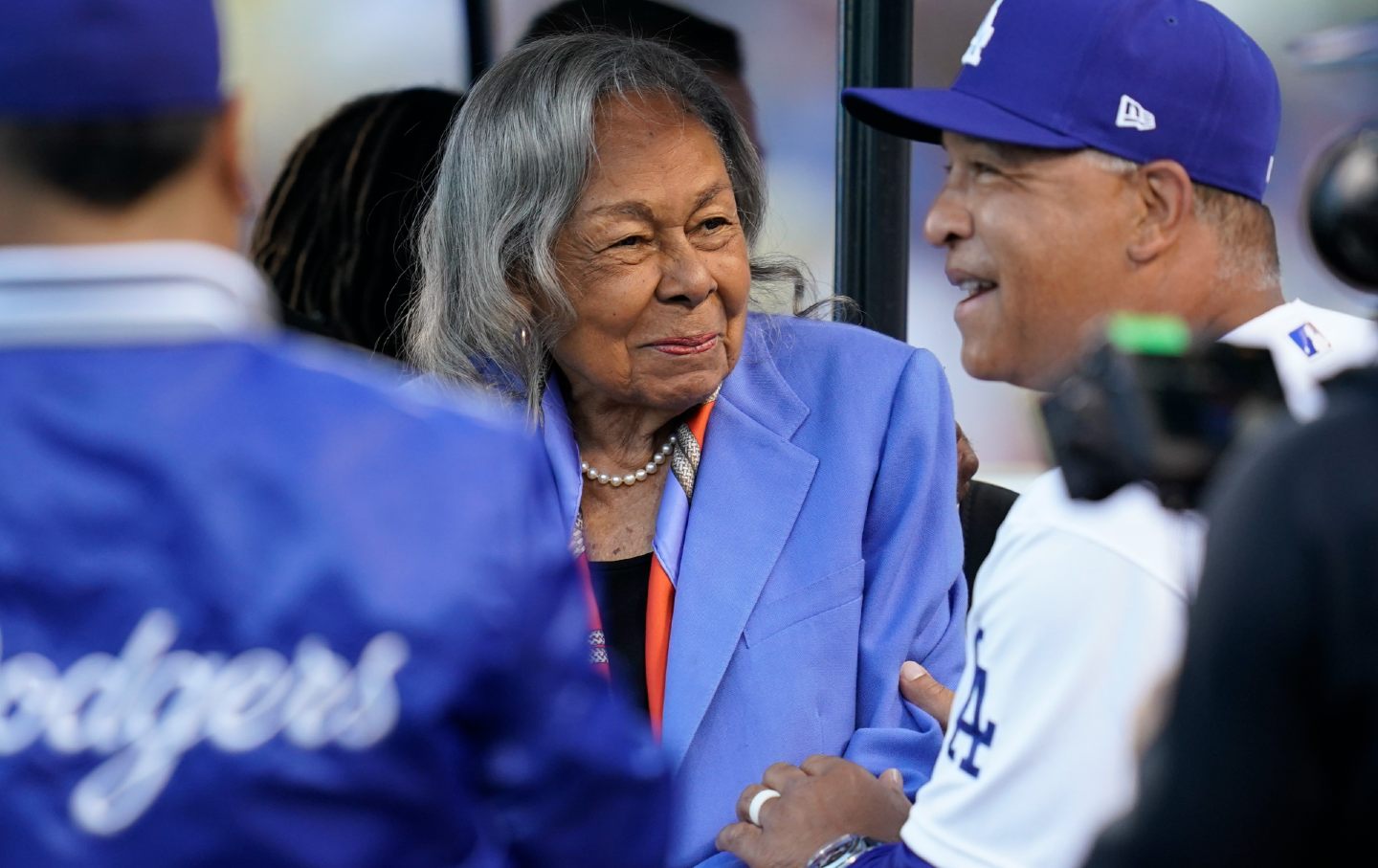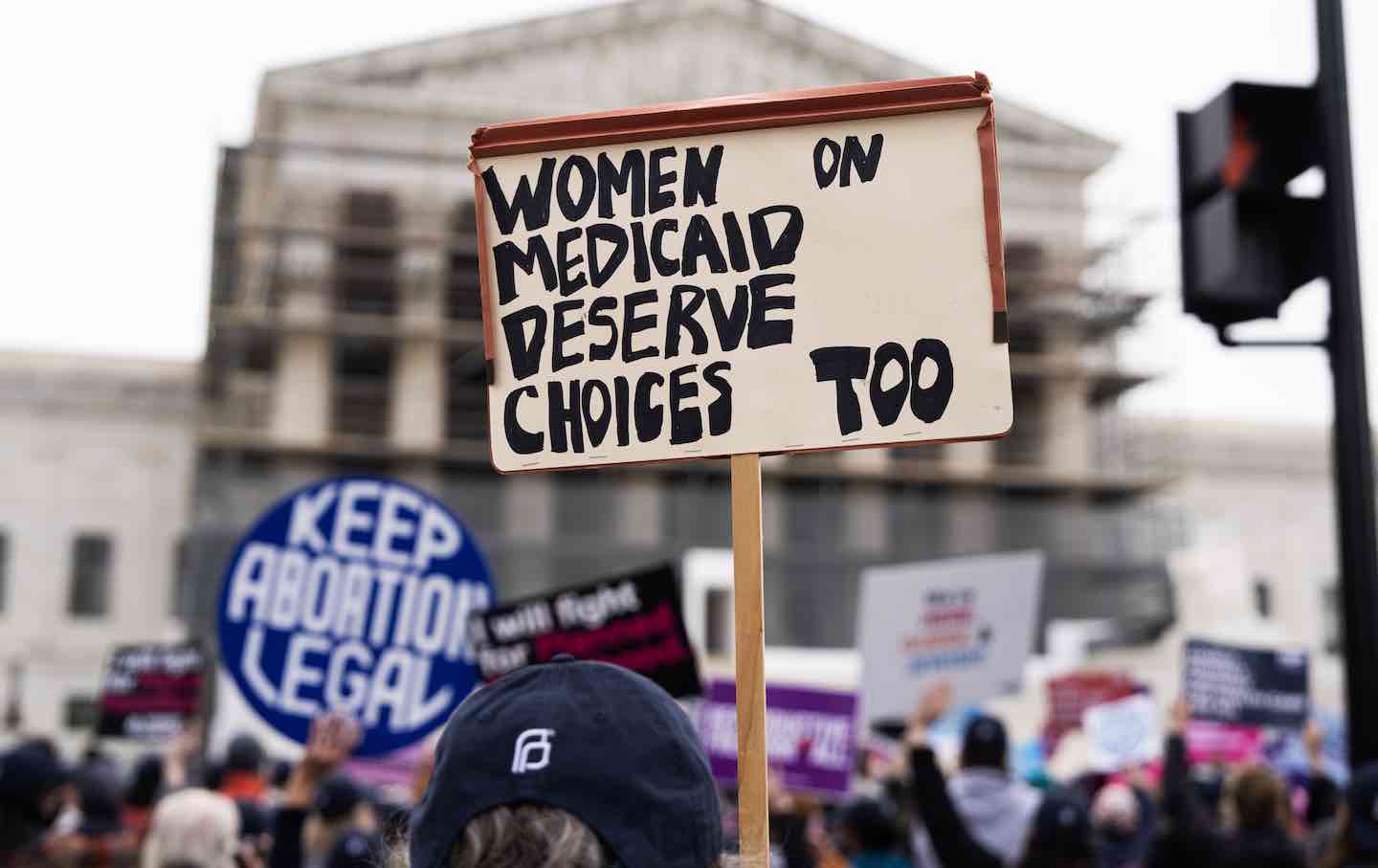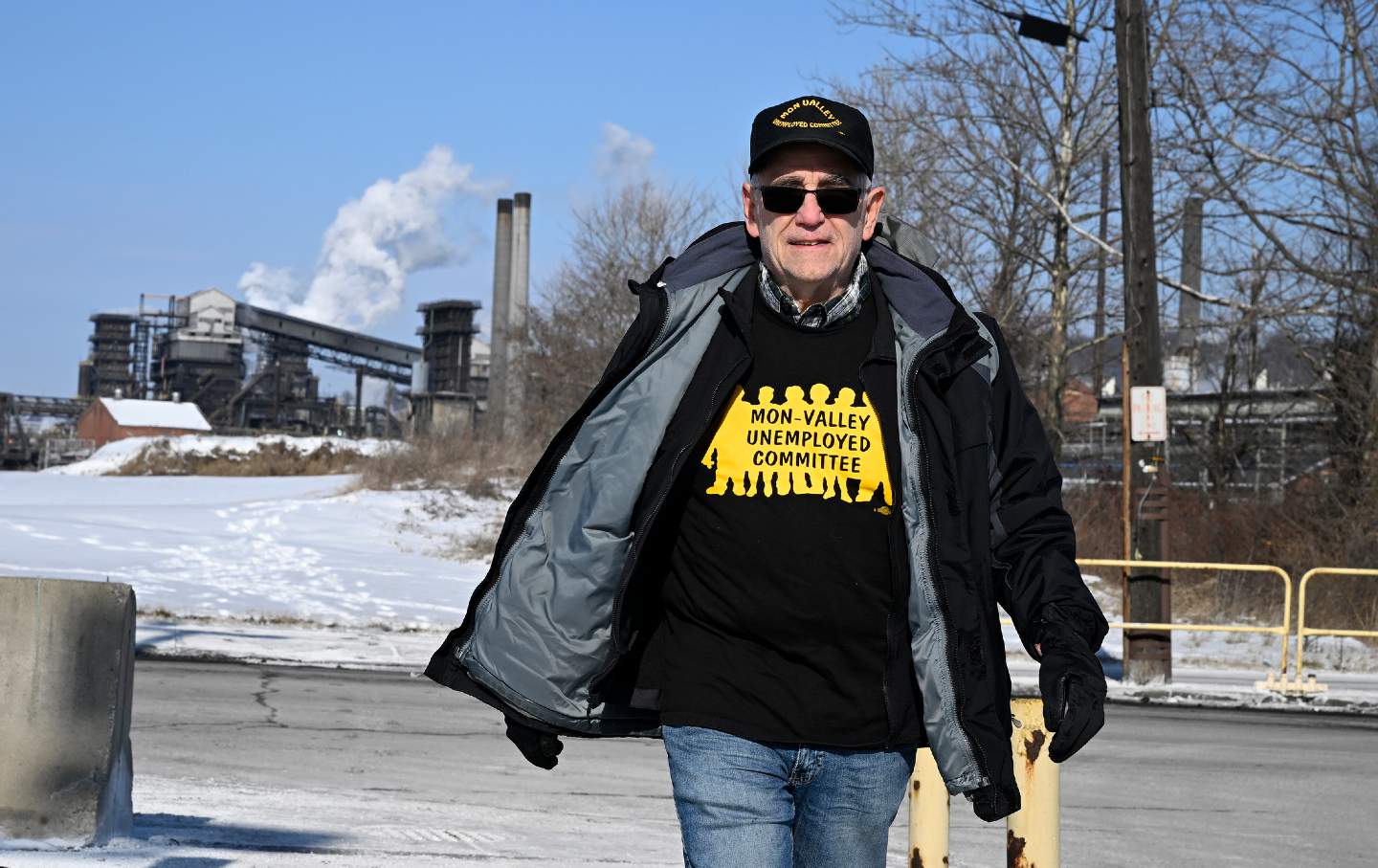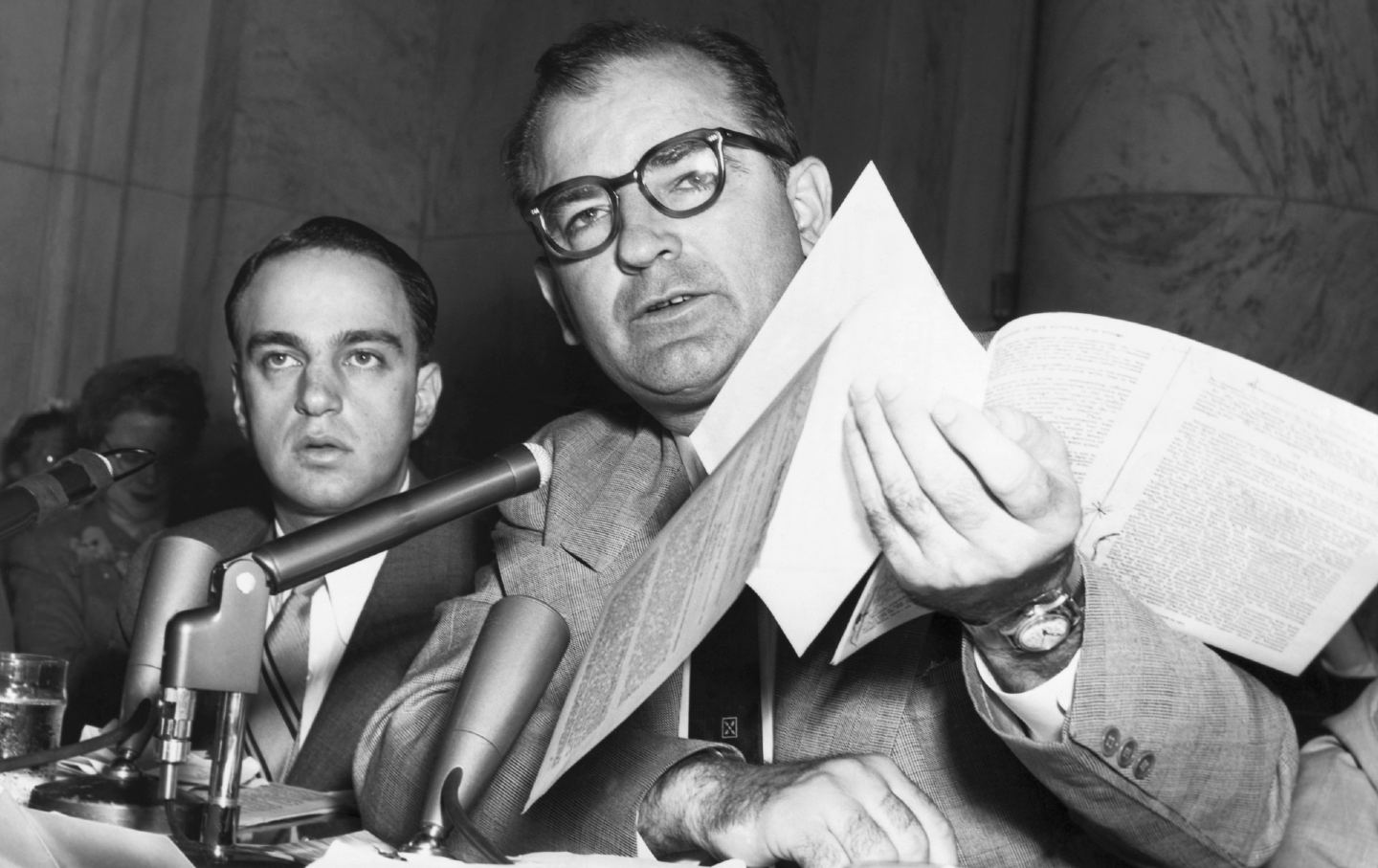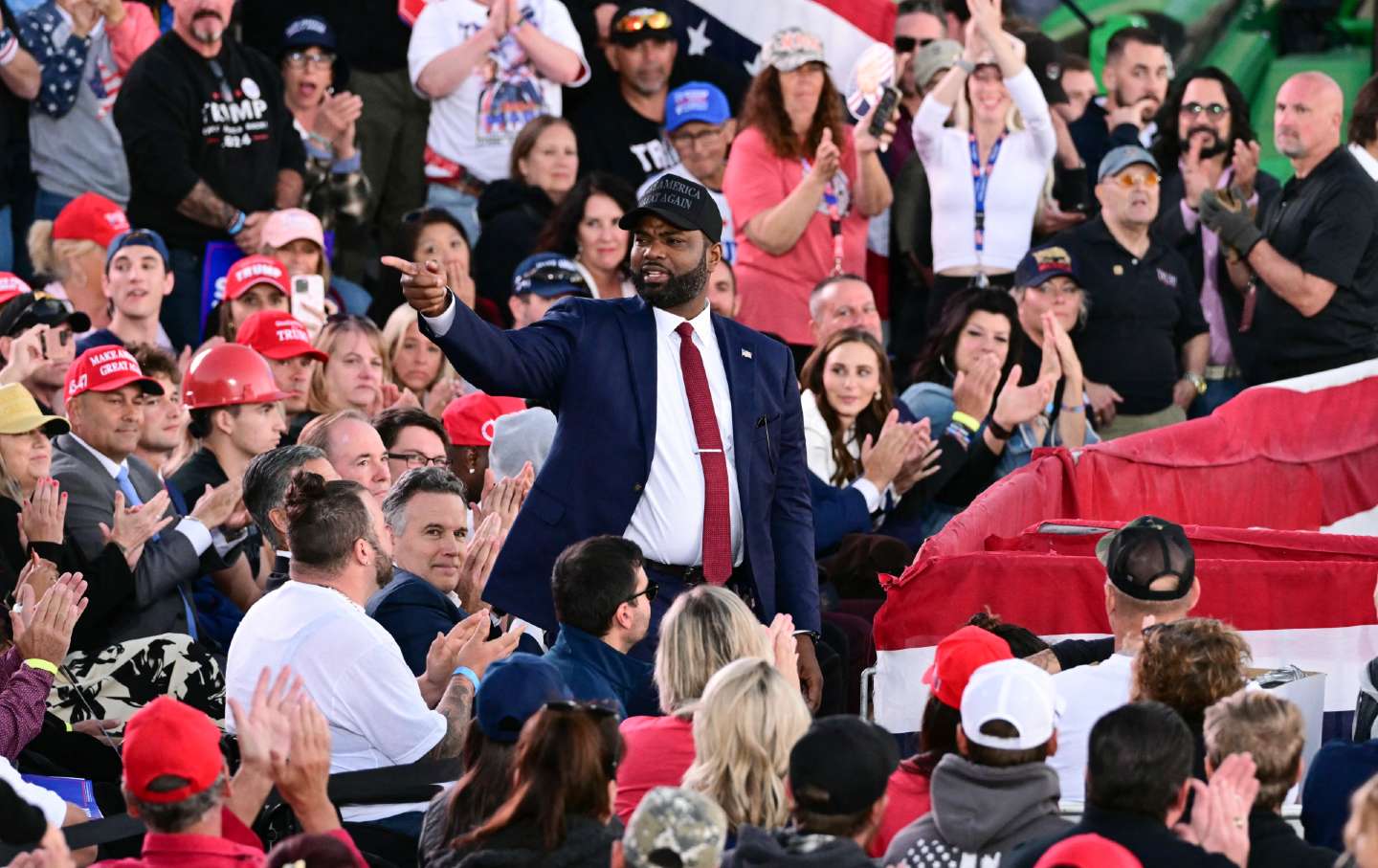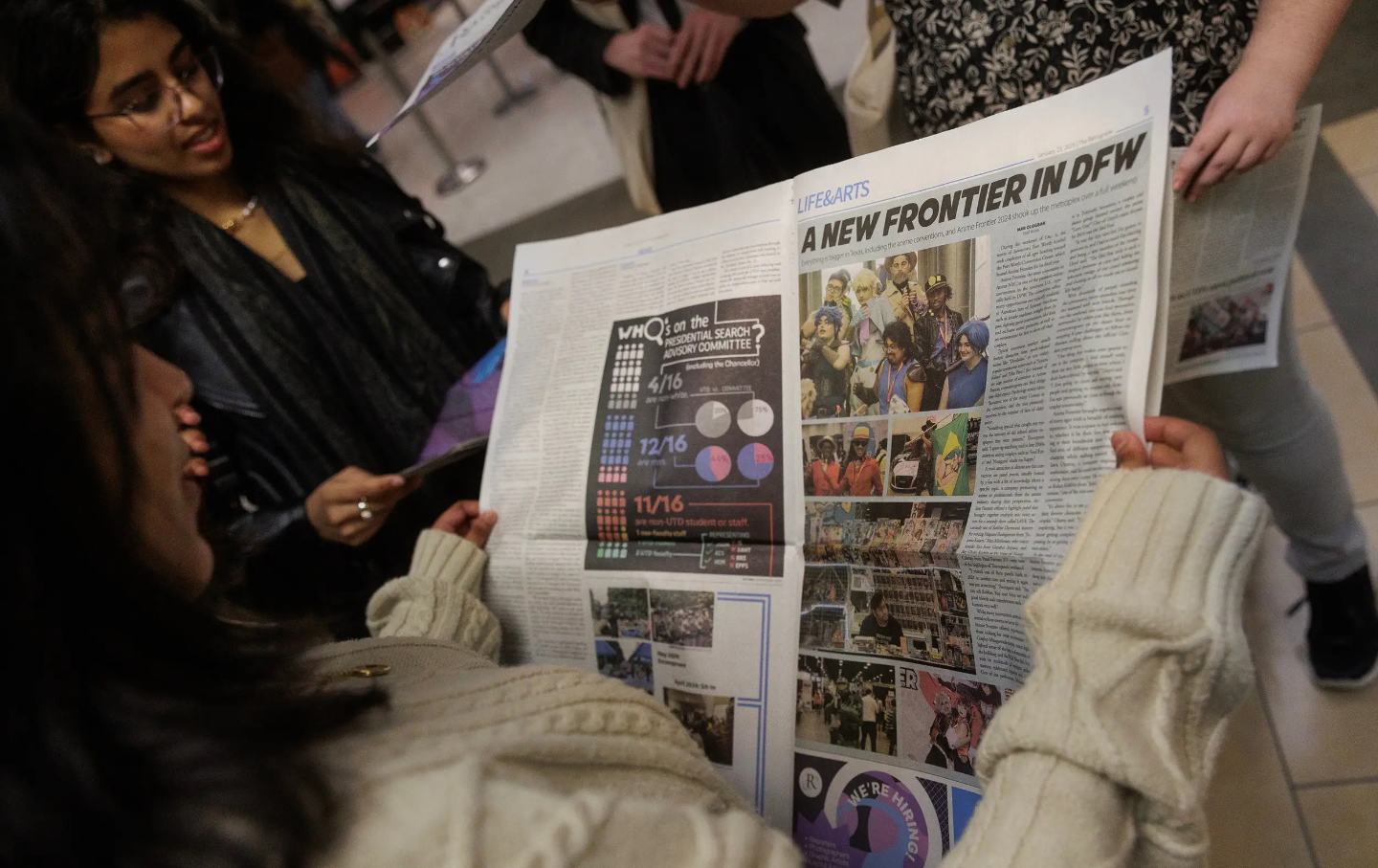The NYPD Is Still Stopping and Frisking Black People
The number of police stops were on the decline in New York City. Then Eric Adams became mayor.
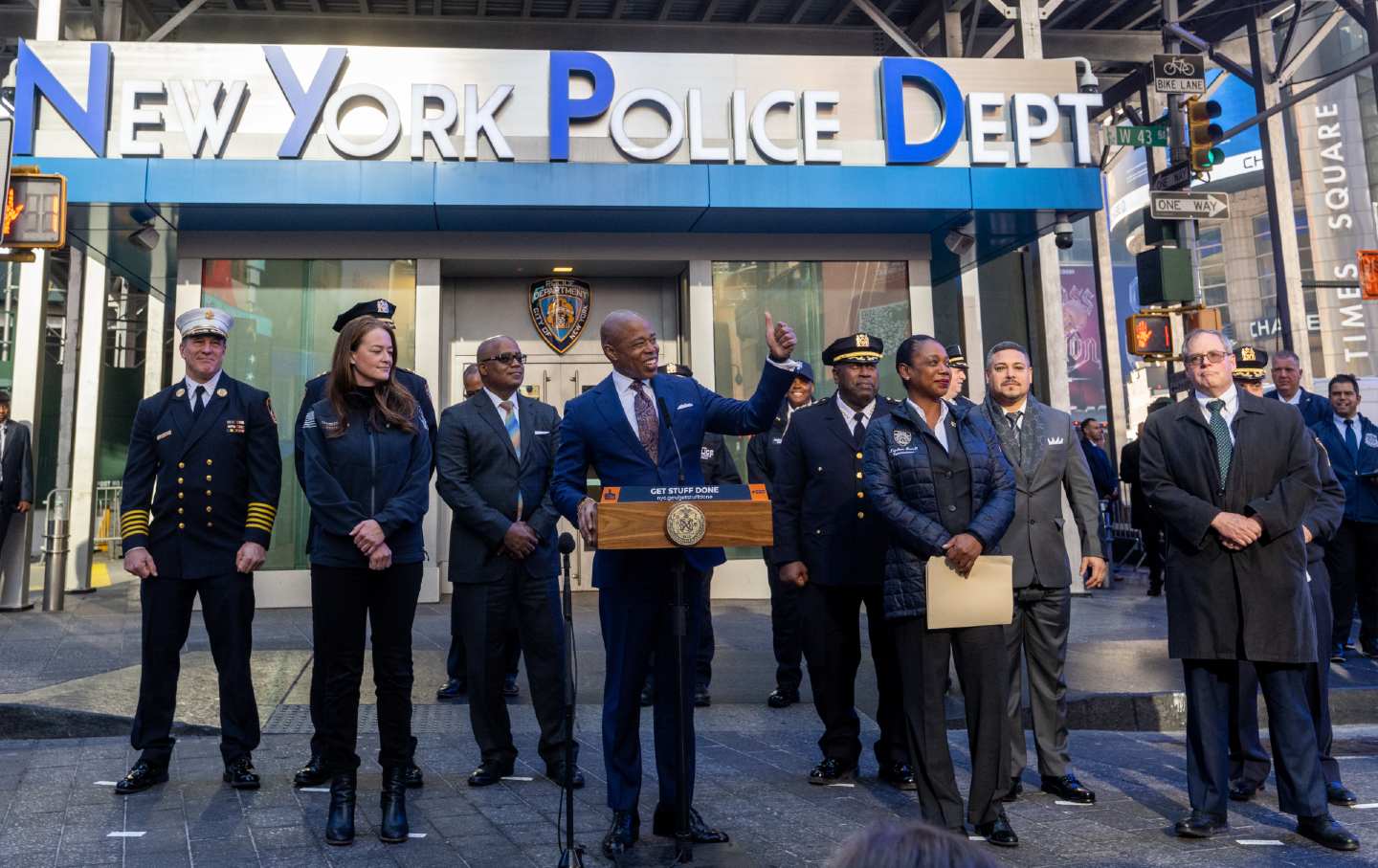
New York City Mayor Eric Adams speaks during a security briefing with former New York City Police Commissioner Keechant Sewell (R) and former FDNY Commissioner Laura Kavanagh (L).
(Alexi Rosenfeld / WireImage via Getty Images)
In 2013, thanks to the landmark lawsuit Floyd v. City of New York, the New York City Police Department was held accountable for at least some of its routine, everyday, racist violations of civil rights. In a nearly 200-page decision, Judge Shira Scheindlin declared that the NYPD’s stop-and-frisk practices violated the Constitution’s Fourth Amendment prohibitions against unreasonable searches and seizures. She also found the practice to be racially discriminatory, violating the 14th Amendment’s Equal Protection clause. She then ordered a court-appointed monitor to oversee a bunch of reforms
The ruling produced results. In 2011, under Mayor Stop-and-Frisk Bloomberg, there were 685,274 reported stops by the NYPD. By 2018, under Mayor Bill de Blasio, that number had come down to 11,008.
But then, New Yorkers, in their questionable wisdom, elected former cop and recently indicted swaggerer Eric Adams. I do not know the Turkish consulate’s stance on stop-and-frisk, but I do know that the practice has been on the rise ever since Adams took power, nearly doubling under his tenure to a reported 16,197 stops in 2023.
As part of monitoring the city’s compliance with Floyd, District Court Judge Analisa Torres ordered a comprehensive report on the NYPD’s stop-and-frisk practices and disciplinary procedures for cops who violate the court order. That report is now available. It will not come as a galloping shock to most Black and brown city residents that the 503-page document concludes that cops still engage in stop-and-frisk, still do so in a “racially biased” manner, and still get away with it while NYPD brass do nothing to hold them accountable. The only way NYPD cops would follow the Constitution is if you stapled it to their noses, and even then, most of them would just decide to walk backward out of spite.
Let’s start with the racial bias part. In 2022, according to the report, 59 percent of those stopped were identified as Black or African American, even though Black people account for only 24 percent of New York City’s population. That percentage is actually up from the period stretching from 2004 to 2012—which was before the Floyd lawsuit—when 52 percent of those stopped were Black.
As before, the report also shows that stop-and-frisk is a lazy and ineffective method of policing. Only 64.5 percent of stops resulted in any law enforcement action, but (of course) Black people were more likely than white people to be arrested even when they engaged in the same conduct.
There’s no real need to relitigate the racist motivations and results of stop-and-frisk policies, because the conduct has already been ruled unconstitutional. But there is, apparently, a need to litigate whether cops can be punished for violating the constitutional rights of citizens. According to the report, that’s not really happening under Adams or whichever one of his family members is running the city at any given moment. The process for discipline and accountability is completely broken.
That’s a problem, because, again, stop-and-frisk is easy—and lazy. It requires no police work and no observation skills. You can just harass anybody who is Black and call it a day. If there are no consequences for violating the constitutional rights of Black people, the worst and laziest cops will simply keep violating those rights.
Samah Sisay, a staff attorney for the Center for Constitutional Rights (which brought the Floyd v. City of New York lawsuit) aptly summarized the court’s most significant conclusions: “The findings in this report of systemic failure to discipline officers for illegal stops and frisks show that even ten years after the landmark ruling in our cases, the NYPD is failing to address unconstitutional conduct by officers.”
The report highlights three main reasons the NYPD’s disciplinary procedures are failing: they’re decentralized; they lack transparency; and the entire thing can be short-circuited by a commanding officer or police commissioner who doesn’t care about following the Constitution.
The problem starts with the myriad internal and external boards and panels responsible for police discipline. I will spare you the acronym overload and say, simply, that there are too many of them, and none of them talk to one another. When everybody is responsible for discipline, nobody is. A cop suspected of wrongdoing may be investigated by multiple disciplinary committees, or may slip through the cracks entirely. And these boards tend to view each incident as a one-off event, instead of looking at the profile of the officer as a whole. If an officer suspected of conducting an illegal stop has received past complaints that resulted in no formal punishment, the board or boards investigating them might have no knowledge of those prior complaints when assessing his conduct.
Even if the officer is investigated and found to have committed some form of wrongdoing, the punishment can be and often is set aside by the police commissioner (who is currently Thomas Dolan, whose homes were searched by federal authorities last week, just a few days after he took over from former police commissioner Edward Caban, who resigned after federal authorities seized his electronic devices—though as far as we know these investigations have nothing to do with the stuff Adams was indicted for so… watch this space). If the commissioner finds that the officer acted in “good faith,” the commissioner can essentially pardon offending officers, regardless of the “recommendations” made by whichever board made the case for discipline.
So imagine you’re a Black New Yorker and you’ve been illegally stopped and frisked, and then you go through all the trouble of filing a complaint at your local precinct. Let’s say the cop’s commanding officer does not dismiss your complaint out of hand (which they often do) and instead dutifully runs the complaint up the chain to one of the various internal review boards. Let’s also imagine that you go the extra mile and file a complaint with the Civilian Complaint Review Board. What happens next?
Most likely… not a damn thing. The boards will review your complaint but, unless the officer has been disciplined before, they have no way of putting your complaint in the context of all the officer’s previous actions. (One of the most grimly hilarious sections of the report details how the NYPD deals with complaints regarding “discourteous” remarks, which is a nice euphemism for officers’ saying the N-word while harassing Black people. Suffice it to say, these language complaints rarely make it into the officer’s record when they’re being investigated for illegal stop-and-frisks.) Unless the officer’s conduct was particularly egregious, no recommendation of discipline is likely to be made.
Even when there is a recommendation (and the Civilian Complaint Review Board regularly makes such recommendations, despite the challenges), the police commissioner can functionally ignore it. And if no discipline is handed out, then the entire complaint and investigation is basically lost in the sauce, so the next time the officer is investigated for illegal conduct, it’s like your complaint never happened.
But if everything works out for you—if you complain and the officer is actually investigated and recommended for discipline and the commissioner allows that discipline to take place—the standard punishment for a stop-and-frisk violation is… three days suspension. So violating your constitutional rights results in an unpaid long weekend for the cop.
We can reform this. Maya Wiley, the former chair of the Civilian Complaint Review Board who ran for mayor (and still has access to all of her electronic devices), proposed as part of her platform a civilian governing board for the entire NYPD. If she’d been elected, that board would have overseen not just police discipline but also the department’s policy and budget. The board would have taken power away from the police commissioner and made police officers subject to civilian oversight rather than allowing them to do whatever their commanding officers let them get away with.
Reducing the discretionary power of the police commissioner is critical to any meaningful reform. As Sisay told The Nation: “The Police Commissioner currently has the final authority on disciplinary matters and has historically used this discretion to excuse illegal stops, frisks, and searches. The entire NYPD disciplinary system needs to change, but removing the Commissioner’s unchecked authority is a necessary step to ensure true accountability.”
Popular
“swipe left below to view more authors”Swipe →Instead, New Yorkers elected a former cop, and he continues to let cops get away with breaking the law and violating the Constitution.
And this is where I remind you that Donald Trump’s plan for all this is to make the local police “absolutely immune” from accountability for any of their actions.
We can vote for people who will bring the police to heel, or we can vote for people who will let the police stick their boots up your ass. I do not know why people consistently vote for the latter, but nothing will change, no matter the court order and constitutional lawsuit, until people vote for better policing.

